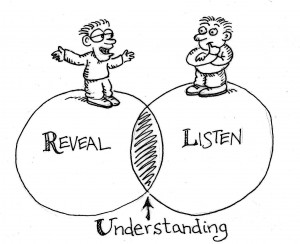Yesterday was Cameron’s birthday… the day he was born… 6 years ago. I originally started writing this post yesterday, to be posted on his birthday but we did so much the whole day that I never did get that chance.
Even though he’s taller than many nine year old children, he’s still and always will be my little boy.
If you have a few minutes, I’d like to give you 6 years.
Once upon a time, I think it was a Thursday…

Cameron - 0 days old
Showing up at the hospital at 8am on the 27th, my wife was “induced” at 11am… wait, wait, wait, push, push, push… my beautiful little boy was born 14 hours later, after 1am on Thursday morning.
That whole first year was amazing… having this little baby sleeping on my chest as I lie on the couch, feeling his little fingers grab onto my finger.
It was everything that parenthood was meant to be. Even the 3 hour feeds all day and night. Friends and family would look at me with this wide smile, sarcastically asking how much sleep I was getting or how tired I was… to their disappointment, I was more than happy with how it was. I don’t even remember how much sleep I got, all I know is that I would have been happy being awake for the whole year… so that I wouldn’t miss a thing.
I loved it.
Enter the villain of our story
 On Cameron’s first birthday, my wife had this wonderful vision of a smashed up birthday cake all over the place. She had one made with 2/3 icing and only 1/3 actual cake… this makes it easier to get little fingers into and spread around.
On Cameron’s first birthday, my wife had this wonderful vision of a smashed up birthday cake all over the place. She had one made with 2/3 icing and only 1/3 actual cake… this makes it easier to get little fingers into and spread around.
But that didn’t happen. It turned out that we had the only little boy in the world (or so we thought at the time) that didn’t like to get dirty. My wife took his hand and buried it into the cake, which fascinated Cameron but again… it wasn’t what we had hoped for.
With the help of some off camera funny faces, we were able to get the picture that we thought would make it all… “normal.” It was what we had to do to get what we wanted. Not what he wanted.
On top of that… his entire first year was without any words, toilet training and without any more snuggling on the couch together.
His first year, he had to spend a good 20-40 minutes with me on the couch at the start of each day or else he’d be upset.
That hasn’t happened since.
The battle begins
After Cameron turned 1, he spent most of his time separating blocks by colour, lining up cars, flipping them over to spin the wheels, doing his Thai-Chi and other very unusual and repetitive behaviours.
I spent a fair portion of that year doing research and when Cameron turned 2, I asked our family doctor for an assessment.
He told me that Cameron was a bright boy, that he was likely just going to be a late talker and recommended we just wait.
We respected his opinion but insisted anyhow… 6 months later, I was in Toronto with Cameron, visiting a hospital.

Cameron in the news
During Cameron’s assessment, Cameron shocked me. Almost even worried me…. he spoke!
The doctor took out a little bottle, a little wand and filled the room with bubbles. To my complete and total surprise, Cameron said “bubbles!”
To be perfectly honest, and the reason I say it worried me, was that this.. of all times, would be when he speaks. That these people would look at me like a neurotic parent that was just wasting their time or worse, making things up. See, I had told them that Cameron can’t speak. He just proved me wrong… right in front of them.
How embarrassing! Wonderful… but embarrassing.
It turns out that I didn’t have anything to worry about because they diagnosed him with PDD-NOS, on the Autism Spectrum. One word certainly isn’t enough to fool a doctor out of a diagnosis… I know that now, I didn’t then.
Fast forward a bit
I’ve written previously about the 3 year wait lists we were put on, the $150/hour speech therapy appointments… how my wife took it upon herself to learn the treatments and therapies so she could do it at home… I’ve even written several times about how we gave up our house, everything we had and moved pretty far in order to get Cameron into a special school where he could excel rather than regress… so I won’t repeat it.
I will, however, tell you about something amazing.
When Cameron was diagnosed, despite having said one word… they told me that it’s entirely possible he might never have “normal speech” and even if he does, it’s even more likely that he’ll never be very good at social interaction and communication.
We were told not to be too disappointed or hard on him if he just can’t grasp toilet training.
Essentially, we were told not to expect the worst but to be prepared for it. Cameron may never progress, he may progress and then regress… anything was possible.
Cameron proved them wrong. Not us, Cameron did.
Truly inspirational

Reading Cat in the Hat
I will never deny that my wife and I have done a lot to get where we are.. we’ve never given up and always tried our hardest. But the truth is that the real person responsible for where Cameron is today is Cameron.
At 6 years old, Cameron is reading Cat in the Hat books himself, he has friends, he’s doing well at school, he can ride a bike now (for the most part), he can finish video games, he speaks in complete sentences (he even says “You and I” instead of “me and you”!!)… he’s doing exceptionally well.
That’s not to say that he doesn’t still have his issues… his senses are still very sensitive, he still needs his specific diet, he still gets overwhelmed quickly and needs quiet time… you get the idea.
I try my best to support people, give them positivity and even inspire people as best I can but the honest truth is that the real inspiration is Cameron.
It’s just simply amazing to think of how well he’s doing despite all of the things I was told almost 4 years ago. He’s overcoming obstacles, he’s smashing through barriers. He’s never giving up.
I don’t just say that as a proud parent.. if you ever get to meet Cameron, you’ll see it in him.
Never Giving Up
As soon as I could have actual conversations with him… I would ask Cameron “What do you do when you fall down?” and his very simple answer was “get up”.
I asked him that at least 2 or 3 times a week, for over two years now. Half the time he answers on auto pilot (without thinking about it), the other half he is always happy to answer because I always praise him so much for being right.
He didn’t learn that from me. I learned it from him. All I ever do is remind him.
Cameron didn’t learn to ride his bike until he was 5… he started learning when he was 3. It took a long time but he never gave up. Cameron had a very hard time playing any sort of video game due to poor motor control but a year later, he could win most races at Mario Kart Wii.
Reading, writing, math, puzzles… it never mattered what it was, he would do it every day, on his own, never willing to give it up.
It was really quite easy for my wife to sit him down to learn the alphabet or numbers or how to do tasks because he was always eager to learn them and no matter how hard it was, he was always eager to keep doing it over and over.
And if there is something he can’t do, if a bad guy in a game can beat him… he gets mad. Not meltdown mad… just… mad. When that happens, there is no turning off the game, there is no doing anything else. It drives him.
No matter how inspiring people can be, no matter how much wisdom they have to share with me… no one inspires me as much as Cameron does.
My hope is that one day he’ll be able to look back on this blog and anything else I do and realize how much he has done for me. I’m so very proud of him.

Cameron - 6 Years Old
 During my time running Autcraft, I found myself constantly teaching people things. I taught children how to work together, how to be a friend, how to play the game, how to deal with bullies and so much more. I also found myself teaching adults as well. How to play the game mostly but also how to cope with troubling behaviours, how to extend their patience level and even how to switch a system which focuses on punishments to one that focuses on positive reinforcement.
During my time running Autcraft, I found myself constantly teaching people things. I taught children how to work together, how to be a friend, how to play the game, how to deal with bullies and so much more. I also found myself teaching adults as well. How to play the game mostly but also how to cope with troubling behaviours, how to extend their patience level and even how to switch a system which focuses on punishments to one that focuses on positive reinforcement.
















